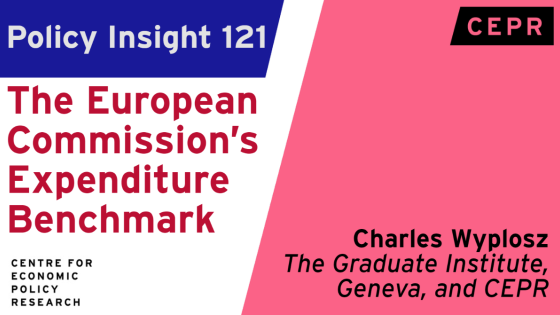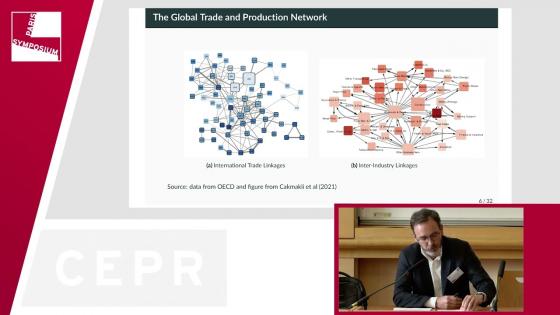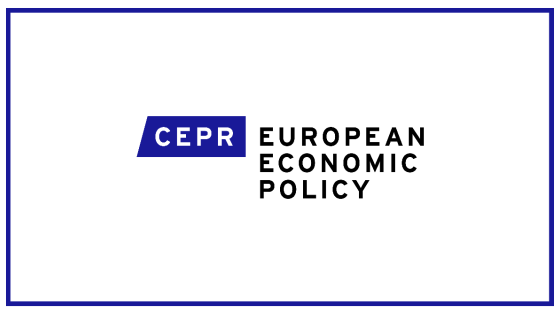Programme
All timings are in CET
December 1
14:55 Welcome by Stéphane Pallage (University of Luxembourg) and Ramon Marimon (EUI and CEPR)
Chair: Ramon Marimon (European University Institute, UPF – BSE and CEPR)
15:00 - 16:30 The legacy of the 21st Century European crises: What do we know?
Introduction: Giancarlo Corsetti (University of Cambridge and CEPR), Xavier Ragot (Sciences Po)
Discussants: Debora Revoltera (European Investment Bank), Michala Marcussen (Societe Generale), Alfred Kammer (IMF)
16:30 - 16:40 Break
Chair: Jean Pisani-Ferry (Senior Fellow, Bruegel and PIIE; Tommaso Padoa-Schioppa chair, EUI and CEPR)
16:40 - 18:00 What can we expect from the NGEU plans?
Introduction: Riccardo Barbieri (Italian Economy and Finance Ministry), Declan Costello (European Commission)
Discussants : Luis Garicano (European Parliament and CEPR) , Silvia Merler (Algebris Investments), Armin Steinbach (HEC Paris)
18:00 - 18:10 Break
18:10-18:50 Introduction: Beatrice Weder Di Mauro (Graduate Institute Geneva, INSEAD Singapore and CEPR)
Keynote: The plumbing of European integration – some lessons derived from practical experience by Klaus Regling (European Stability Mechanism)
December 2
09:25 Welcome by Rolf Strauch (European Stability Mechanism)
Chair: Rolf Strauch (European Stability Mechanism)
9:30 - 10:45 Climate action and macroeconomic policy
Introduction: Jean Pisani-Ferry (Senior Fellow, Bruegel and PIIE; Tommaso Padoa-Schioppa chair, EUI and CEPR)
Discussants: Philippe Aghion (LSE and CEPR) and Paul Hiebert (European Central Bank)
10:45 - 11:00 Break
Chair: Rolf Strauch (European Stability Mechanism)
11:00 - 12:15 Reforming the fiscal framework: Radical options and the feasibility space (1h30)
Panel discussion: Tuomas Saarenheimo (Council of the European Union), Niels Thygesen (European Fiscal Board), Beatrice Weder di Mauro (Graduate Institute Geneva, INSEAD Singapore and CEPR), Lucas Guttenberg (Institut Jacques Delors)
12:15 - 14:00 Lunch break
Chair: Beatrice Weder Di Mauro (Graduate Institute Geneva, INSEAD Singapore and CEPR)
14:00 - 15:15 A new policy mix
Introduction: Philippe Martin (Sciences Po, French Council of Economic Analysis and CEPR)
Discussants: Elga Bartsch (Blackrock), Lars Feld (Walter Eucken Institut Freiburg), Rolf Strauch (European Stability Mechanism)
15:15 - 15:30 Break
Chair: Philippe Martin (Sciences Po, French Council of Economic Analysis and CEPR)
15:30 - 16:45 Fiscal union
Introduction: Ramon Marimon (European University Institute, UPF – BSE and CEPR)
Discussants: Agnès Bénassy-Quéré (French Treasury), Mateusz Szczurek (EBRD), Jakob von Weizsäcker (Federal Ministry of Finance), Marco Buti (European Commission)
16:45 Closing remarks by Jean Pisani-Ferry (Senior Fellow, Bruegel and PIIE; Tommaso Padoa-Schioppa chair, EUI and CEPR)
17:00 - 17:45 European Economics Architecture &Policy Network Session
Organising Committee
- Jan Pieter Krahnen (SAFE, Goethe University Frankfurt and CEPR)
- Ramon Marimon (European University Institute, UPF – BSE and CEPR)
- Philippe Martin (Sciences Po, French Council of Economic Analysis and CEPR)
- Jean Pisani-Ferry (Senior Fellow, Bruegel and PIIE; Tommaso Padoa-Schioppa chair, EUI and CEPR)
- Rolf Strauch (European Stability Mechanism)
- Beatrice Weder Di Mauro (Graduate Institute Geneva, INSEAD Singapore and CEPR)
Thursday, December 2, 2021
meeting date:
Wednesday, December 1, 2021 to Thursday, December 2, 2021



